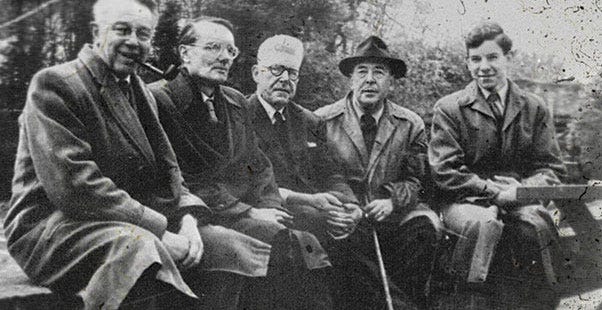David Foster Wallace had this line: he’d say that writing a novel is like carrying a sheet of plywood in a windstorm. I know I’m not supposed to like DFW anymore, but I’ve never read a better description of either writing a novel or, honestly, just getting the hell through some days.
I’ve seen lots of posts and Substacks and celeb rants lately reclaiming ambition and drive, especially for women. My friend Leigh Stein, a radiant powerhouse of a woman who all the writers among you should be following for her brilliant takes on the publishing industry, recently wrote about her resolution to be a “tryhard loser” in 2023. She elaborates:
To me, being a tryhard loser means showing the work. It means being openly ambitious (but never losing yr sense of humor!!). All those think pieces that came out post-girlboss about "the end of ambition"? Can't relate. I know all about anti-hustle-culture culture, the reasons I should be meditating, prioritizing rest and "less doing, more being"...sorry, but these don't light me up.
And though we’re writing in entirely different worlds, I’ve been intrigued by the Substack of the influencer Katherine Ormerod, because we went to school together. A few days ago, she published a post about her innate drive—how it simply comes naturally to her to pack a day full of Pilates, home renovations, social-media influencing, ghostwriting books, taking care of her two children, and then putting on a dress and going out for a fancy dinner and cocktails.
My god, I’ve never felt more alien, more like a different species: some sort of skinless weirdo. I’d be lying if I said I wasn’t envious. I start most weeks and even most days with a resolution to be more, well, resolute. It’s not like I don’t have enough to do, between studying and running a business and showing up as a friend and sister and daughter and aunt and community member and pursuing my creative goals and building a new life and finding a home and etc etc.
I have accountability buddies. I set goals. I have routines and rituals.
But I would be embarrassed to tell you just how much of every week I seem to spend flat on my back, lying under a sheet of plywood, having been knocked off my feet by one of life’s high winds. Or what feels, to me, like a high wind.
After being sideswept by a particularly strong gust this past week, with these other women’s statements of purpose still ringing in my ears, I started thinking about the nature of the wind in these windstorms that so often send me flying.
When I speak to friends who also frequently find themselves flat on their backs, what I hear is that they’re tingling to their fingertips with all the need and problems in the world. Is this the most valuable way I could be spending my time?, they’re constantly asking themselves. And: What is the real purpose of my life? And: Why am I spending the day repeatedly wiping hummus off the floor and walls and child, or chained to a laptop, or stuck in bureaucratic hell, when the climate is collapsing and people are losing everything they love and species are dying out forever? And: Why is the world this way? What is wrong with me, with us as as a species?
I’m not saying that the more resolute among us aren’t also deeply concerned with these things. People deal with things in their own ways. And those with an unshakeable sense of purpose are often the ones who forge paths through crisis.
But I want to suggest that being lumbered with this plywood, with this extreme receptive capacity to turbulence, might contain a gift too.
You might not have heard of Owen Barfield, but you’ve probably heard of his pals C.S. Lewis and J.R.R. Tolkien. Together with some other luminaries, they had an informal literary group called the Inklings; it was at Inklings meetings that The Lord of the Rings was first read aloud.
Barfield has been relegated to the shadows somewhat—that’s what you get for hanging out with literary giants, I guess—but he had a beautiful idea that I think about all the time. He argued that in earlier times, everyday language had not been severed from its poetic resonance, leading people to experience the world in a fundamentally different way. His famous example is that the ancient Hebrew word ruach could mean breath, wind, or spirit. Or, rather: that it meant all three at once.
This means that the wind that chaps your cheeks and tangles your hair and can send you flying onto your arse isn’t just air propelled by uneven heating of the Earth. It’s the breath of god.
For this to mean anything, you have to experience it as more than a pretty image. The words we use matter deeply, and in a language that didn’t distinguish between the ideas of wind and breath and god, the spirit in the wind was a given. Always already there. Every bit as real as our understanding, today, of weather patterns and climate change.
If you frequently find yourself flat on your back, panting under a sheet of plywood, try to remember this. Nothing is ever just what it seems. The wind that blew you over is god’s breath. There’s meaning in it. And maybe you’re supposed to take these few minutes, hours, days, of lying there, winded, to feel into what that meaning might be, and what you’re supposed to do with it.
I still wish, often, that I wasn’t this way. I feel embarrassed about how little I’ve achieved in my life, really, considering the privileges I’ve had. But I also know that whatever I’m supposed to do or contribute in this life, this pain-in-the-arse plywood is part of it. It was given to me for a reason. So, up I get. Up we get. Onwards into the wind—into god’s breath.
Love,
xx Ellie




Beautiful. Thank you 💞💫